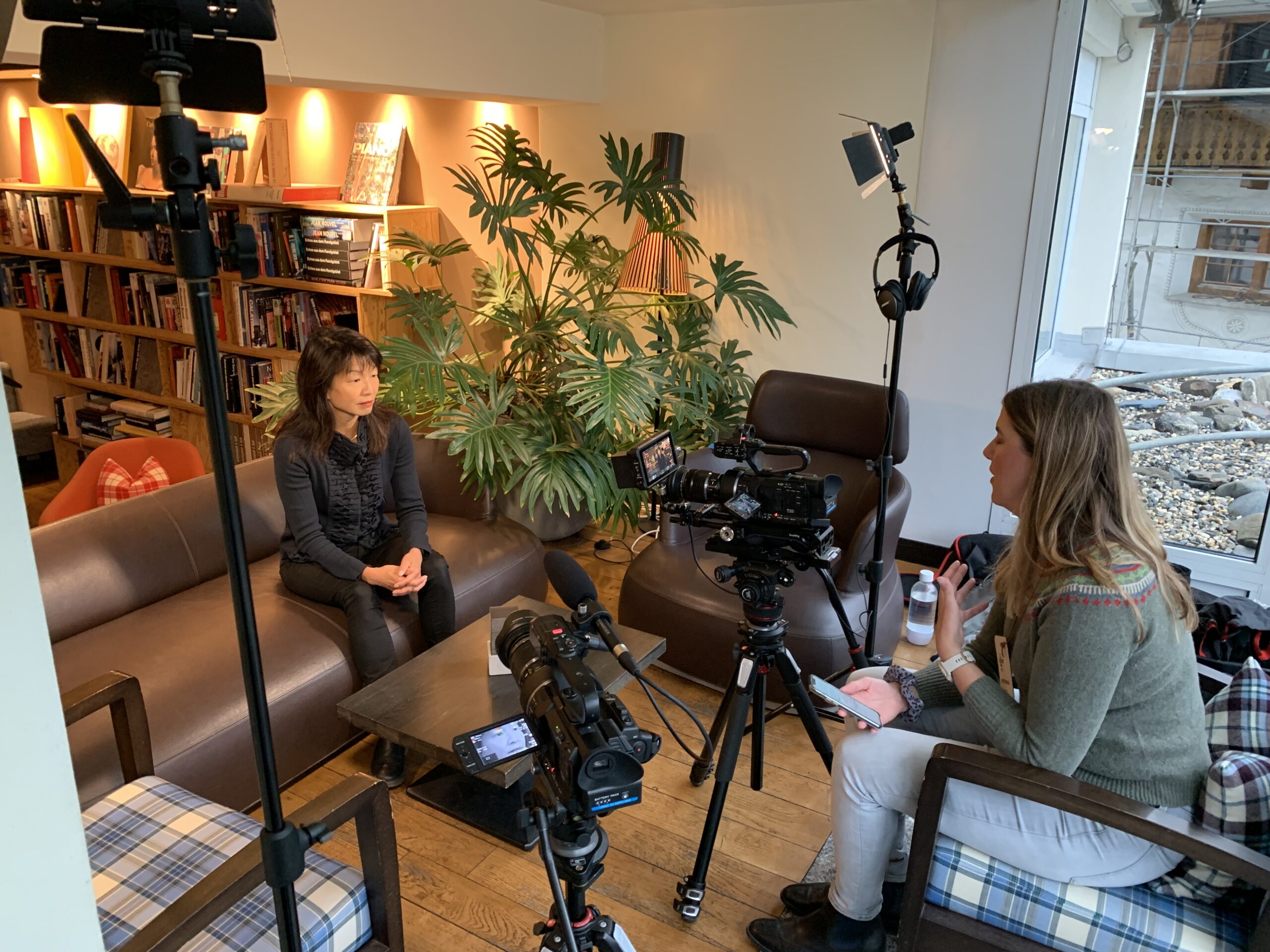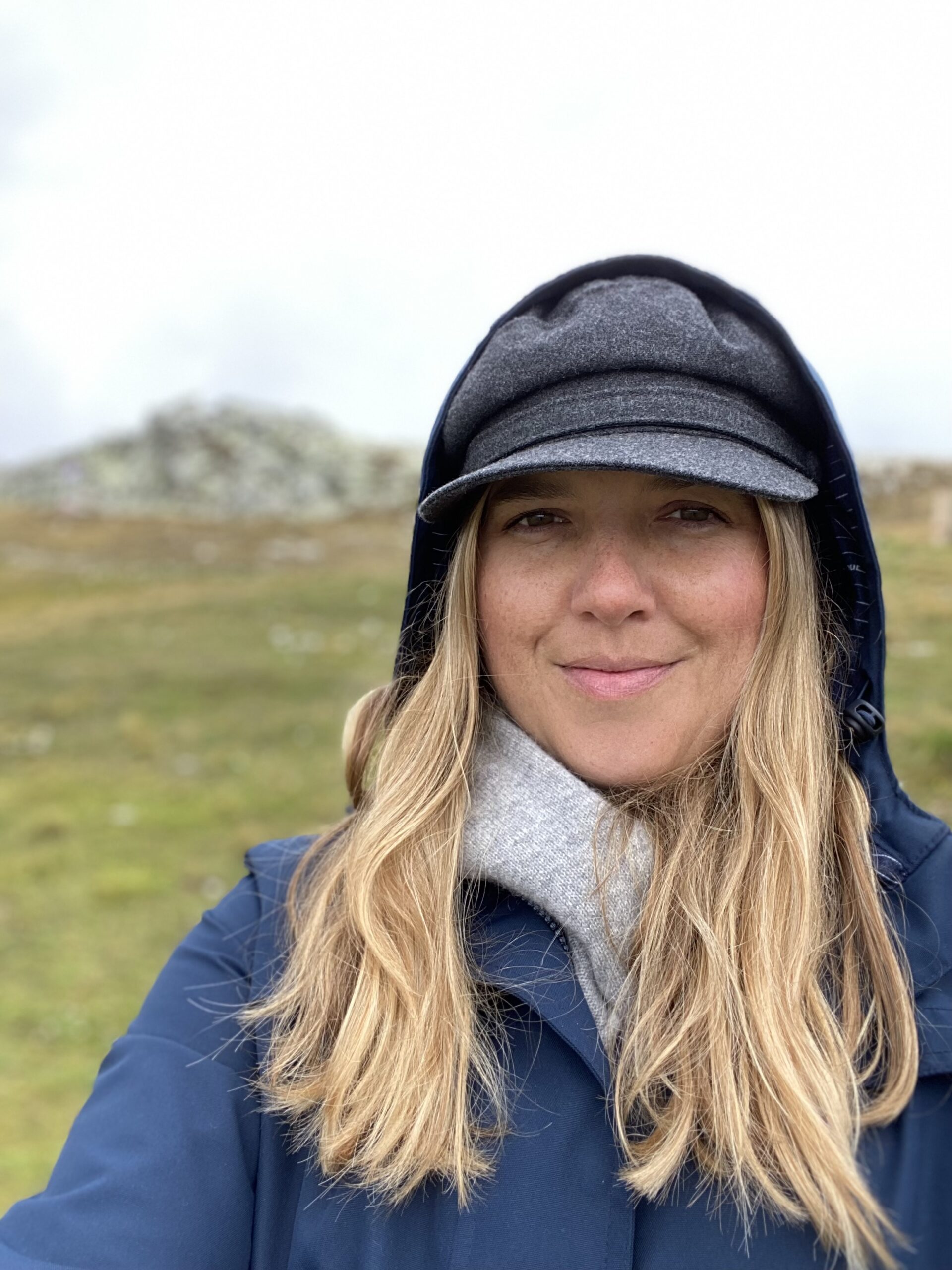Laax. A beautiful mountain resort situated in the Swiss Canton of Graubünden. Best known as a freeride snowboarder's paradise, the village was host in September 2021 to the first ever gathering of the [y]our 2040 community, a coalition of the willing focused on "the world we want to co-create." Supported by ETH Zurich, the event included participants from diverse backgrounds, all connected by a common goal and shared values. Taking the opportunity of being onsite to talk to some of them, we want to make the link with our RETHINKING LIVING campaign, a virtual red-thread we have been running since the start of the pandemic.
From Laax to Davos: Reflections on RETHINKING LIVING
Episode 1: Cynthia Hansen, Adecco Group Foundation
by Viktoria Ivarsson
The Journey Begins
RETHINKING LIVING invites us to consider the grand challenges and global issues of today through the lens of the latest science and knowledge. What is life? How do we live? What are the consequences of our lifestyle choices? We asked participants in Laax to tell us what are the questions that keep them up at night, and how they see the future evolving. This video series distills their reflections, to help us think about what could, and what should come next. At the World Economic Forum's Annual Meeting 2022 in Davos, ETH Zurich will take up these questions in its RETHINKING LIVING Pavilion, a space designed to promote dialogue and exchange with a broad audience.
How Do We Ensure No One Gets Left Behind?

Photo credit: Daniel Barnbeck
In our first installment in the series, we hear from Cynthia Hansen, the Head of the Innovation Foundation (formerly the Adecco Group Foundation). Cynthia's work is all about the future of work; she featured as a guest at the ETH Global Lecture Series earlier this year in a discussion about the relationship between how we educate, and how we learn. Watch her interview above, or read the edited transcript below. For additional resources and further information, visit:
https://your2040.com
https://ethz.ch/en/the-eth-zurich/global/events/rethinking-living.htm
http://www.innovationfoundation.net/
https://your2040.com
https://ethz.ch/en/the-eth-zurich/global/events/rethinking-living.htm
http://www.innovationfoundation.net/
My name is Cynthia Hansen, and I'm the Head of the Adecco Group Foundation. I wake up in the middle of the night thinking about how we can ensure that nobody is left behind, and they're given a role in creating their own future. I chose to be at [y]our 2040 because I'm really interested in finding a peer group of people who are also invested in the idea of systems change, and making lasting change as we look towards the future, particularly around sustainability and what the human element is of sustainability.
We need to make sure that all of the recovery, all of the initiatives that happen, have the human at the centre. For that we need to think about how you build human-centric organizations, human-centric systems, and that that will help to bring people back into systems, to employment and into the labor market. That that will also drive a whole sense of inclusivity that I think has dropped out as a result of COVID, and also just as a result of the way society and modern society has evolved.
One of the things we've seen is actually a lack of science and scientific rigor, and a lack of really good, credible, but also accessible research in the field of human resources and looking at talent, looking at how people interact. Universities in general and ETH Zurich in particular can do is to bridge between people and institutions, between government and the business sector. It's providing a connective tissue, and making sure that the connective tissue is very much rooted in data and new insights.
I think that the future is going to be fundamentally different. We won't know what it is. We need to be flexible and comfortable with ambiguity. I'm quite positive that we will find ways to be more inclusive to bring people back, and that the future will be probably more stable and more positive than it is today.
I'm also under no illusions that it's going to be difficult. It's going to be a long process. Change always takes a long time. There are people who fall out. You need to really focus on keeping people part of the process. The future that I see would be ultimately more inclusive, would have more opportunity. There would be a sense of choice, and human agency, so that people feel part of making the change. So overall, I'm pretty positive. But again, I think it's going to be a tough slug.
We need to make sure that all of the recovery, all of the initiatives that happen, have the human at the centre. For that we need to think about how you build human-centric organizations, human-centric systems, and that that will help to bring people back into systems, to employment and into the labor market. That that will also drive a whole sense of inclusivity that I think has dropped out as a result of COVID, and also just as a result of the way society and modern society has evolved.
One of the things we've seen is actually a lack of science and scientific rigor, and a lack of really good, credible, but also accessible research in the field of human resources and looking at talent, looking at how people interact. Universities in general and ETH Zurich in particular can do is to bridge between people and institutions, between government and the business sector. It's providing a connective tissue, and making sure that the connective tissue is very much rooted in data and new insights.
I think that the future is going to be fundamentally different. We won't know what it is. We need to be flexible and comfortable with ambiguity. I'm quite positive that we will find ways to be more inclusive to bring people back, and that the future will be probably more stable and more positive than it is today.
I'm also under no illusions that it's going to be difficult. It's going to be a long process. Change always takes a long time. There are people who fall out. You need to really focus on keeping people part of the process. The future that I see would be ultimately more inclusive, would have more opportunity. There would be a sense of choice, and human agency, so that people feel part of making the change. So overall, I'm pretty positive. But again, I think it's going to be a tough slug.

Photo credit: Viktoria Ivarsson
About the author
Change Agent. Go-to Person. Viktoria Ivarsson is the International Relations Officer in the Office of the President of ETH Zurich, where she works on projects and events of international scope to increase the visibility of the university worldwide. She also manages the ETH Circle, an international network of alumni and friends of ETH Zurich who act as ambassadors. Formerly with EHL School of Hospitality, Hirslanden, and the World Economic Forum, Viktoria holds an MAS in Sports Administration and Technology from the Swiss Federal Institute of Technology in Lausanne (EPFL), and an MA in International Relations from the Graduate Institute of International and Development Studies (HEI). A Swiss and Swedish national, she is fluent in 4 languages, and is currently learning German. A member of Nordiska, the Nordic Rowing Association, she can be found most mornings rowing on Lake Zurich. You can follow her on Twitter at V_Ivarsson.
comment
Please activate comment.


